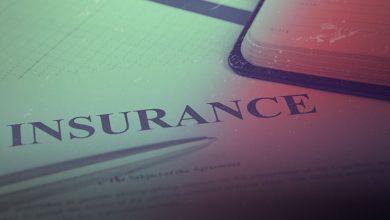Can Paying Off Old Debt Help Your Finances? Here’s What Experts Say
Debt can be a heavy burden on the financial well-being of many individuals. If you’re carrying old debt, such as student loan debt or overdue credit card bills, you might think that paying it off would give your finances a much-needed boost. But is this actually something that could help your financial situation? Should you pay off an old debt? In this blog post, professionals weigh in on the potential benefits and drawbacks of paying off old debt.

Debt can be a heavy burden on the financial well-being of many individuals. If you’re carrying old debt, such as student loan debt or overdue credit card bills, you might think that paying it off would give your finances a much-needed boost. But is this actually something that could help your financial situation? Should you pay off an old debt? In this blog post, professionals weigh in on the potential benefits and drawbacks of paying off old debt. We explore when it’s worthwhile to pay debts ahead of time and why tackling more than one payment at once may not always be ideal. Read on to discover which strategies make sense when considering whether or not to pay off old debt!
What Is Considered an “Old Debt”?
The definition of “old debt” can vary depending on the specific context. Generally, it denotes debts outstanding for an extended period – often several years. As a point in case, some creditors might deem a bill to be old if it has gone unpaid for 90 days or more, while others may consider it aged only after multiple years of delinquency. It is noteworthy that different sorts of accounts may possess distinctive timelines for when they are considered ancient.
According to the FCRA, negative data can stay on a credit report for up to seven years from initial delinquency if it has been charged off or sent to collections and is not yet paid. This means that once these debts reach this age or older, they are considered “old” in terms of credit reporting.
Remembering that a debt may still be legally enforceable even if it is considered old is essential. Creditors or debt collectors might attempt to collect the debt from you, regardless of age. Moreover, paying an old debt won’t necessarily enhance your credit score since the derogatory information linked with the owed amount can remain on your credit report for up to seven years.
Potential Consequences of Leaving Old Debt Unpaid:
Leaving old debt unpaid can have several potential consequences, including:
- Damage to credit score: Old debts, particularly those a few years old, can have destructive consequences on your credit score. This is especially serious since it may hinder you from obtaining loans or credit in the future and cause higher interest rates if approved for any.
- Collection efforts: Even if creditors or debt collectors are no longer lawfully mandated to pursue payment on old debts, they may continue their attempts. This can be in collection calls, letters, or even legal action such as a lawsuit or wage garnishment. Beware that persistent pursuit of repayment is possible, and knowing your rights is important!
- Statute of limitations: Depending on the type of debt and your home state’s laws, creditors may be limited to a certain amount of time to take legal action for collecting payment. Nevertheless, if you make even a single partial payment towards an old debt, it can reset the clock in terms of how long those same creditors have left legally pursue collection- leaving you vulnerable once again.
- Financial strain: Unpaid debts can take a toll on your finances, especially if they accumulate additional charges such as interest or penalties. This could make it hard to cover other costs and save for what matters most in the future.
It’s generally advisable to address old debts either by negotiating a settlement with the creditor or by seeking the assistance of a credit counselor or financial advisor.

The Benefits of Paying Off Old Debt:
Paying off old debt can have several benefits, including:
Improving Credit Score:
Repaying past debt can help bolster your credit score. Unpaid debts, especially those a few years old, will significantly reduce your creditworthiness and make lenders less likely to provide you with new loans or lines of credit. Paying off these accounts reflects positively on your history of managing finances and improves creditors’ perception of you as a borrower!
Reducing Financial Stress:
Unpaid debt can lead to a great deal of fiscal pressure, especially if the amount owed grows through accrued interest or fees over time. Yet, wiping away these old debts will offer you both respite from this financial burden and peace of mind.
Avoiding Collection Efforts:
By taking care of an old debt, you can stave off collection efforts from creditors and debt collectors. This way, you won’t have to worry about those pesky phone calls or letters—not even the threat of legal action.
Protecting Assets:
Unpaid debts can have serious consequences, from lawsuits to wage garnishment and the seizure of your assets. Securing the old debt is paramount in preserving your financial security – don’t wait until it’s too late!
Improving Future Credit Opportunities:
Paying down your past debt can fortify your credit score, making obtaining loans or lines of credit simpler. This will result in more favorable interest rates and terms, ultimately saving you money long-term.
Tips for Paying Off Old Debt:
Here are some tips to help you pay off old debt:
- Prioritize your debts: Begin by listing all your debts, their respective interest rates, and minimum payments. Then, order these debts from the highest to the lowest interest rate. Place the debt with the highest amount at the top as it should take precedence over any other debt you may have; make sure to pay at least its minimum payment every month while devoting yourself towards gradually paying that off first before moving on down your priority ladder.
- Negotiate with creditors: Struggling to stay on top of your debts? You should consider broaching the topic with creditors and inquire if they want to develop a payment plan or settlement. Most lenders are open for negotiations, especially when you demonstrate that you’re making an honest effort at settling what you owe.
- Consider debt consolidation: Debt consolidation may be a smart choice if you’re overwhelmed by multiple debts with high interest rates. This process entails taking out a loan with lower interest fees so that the repayment of your current obligations can be combined into one easy monthly payment.
- Use windfalls to pay down debt: With extra or unexpected funds, such as tax refunds, bonuses, and inheritance, you can try to pay off your debts. It’s best to prioritize the debt with the highest interest rate first so that additional money is not paid toward costly fees.
- Cut expenses: To free up more money for debt payments, call into question all non-necessary costs, such as meals out and recreational activities. Furthermore, think of means to save on essential expenses like groceries and bills.
- Seek professional help: Stressed about your financial obligations? Don’t fret! Professional assistance from a credit counselor or financial advisor can be the key to reclaiming control of your debt. They will help you devise an appropriate plan to tackle those debts and ease any anxiety you may feel.
Final Words:
Having looming debts can be a great source of stress and hinder progress toward financial stability. Thankfully, it is possible to make a plan to pay back old debts, which can, in turn, help your finances – even if it may seem intimidating at first. It is important to start paying off debt by understanding one’s financial situation and utilizing resources from the government or private sector. Furthermore, creating a budget and reaching out to creditors might prove useful in avoiding falling deeper into debt and regaining financial freedom. Ultimately, with clarity on the right steps to take, dedication, and discipline, anyone can pay off their old debts and improve their financial fortunes.




